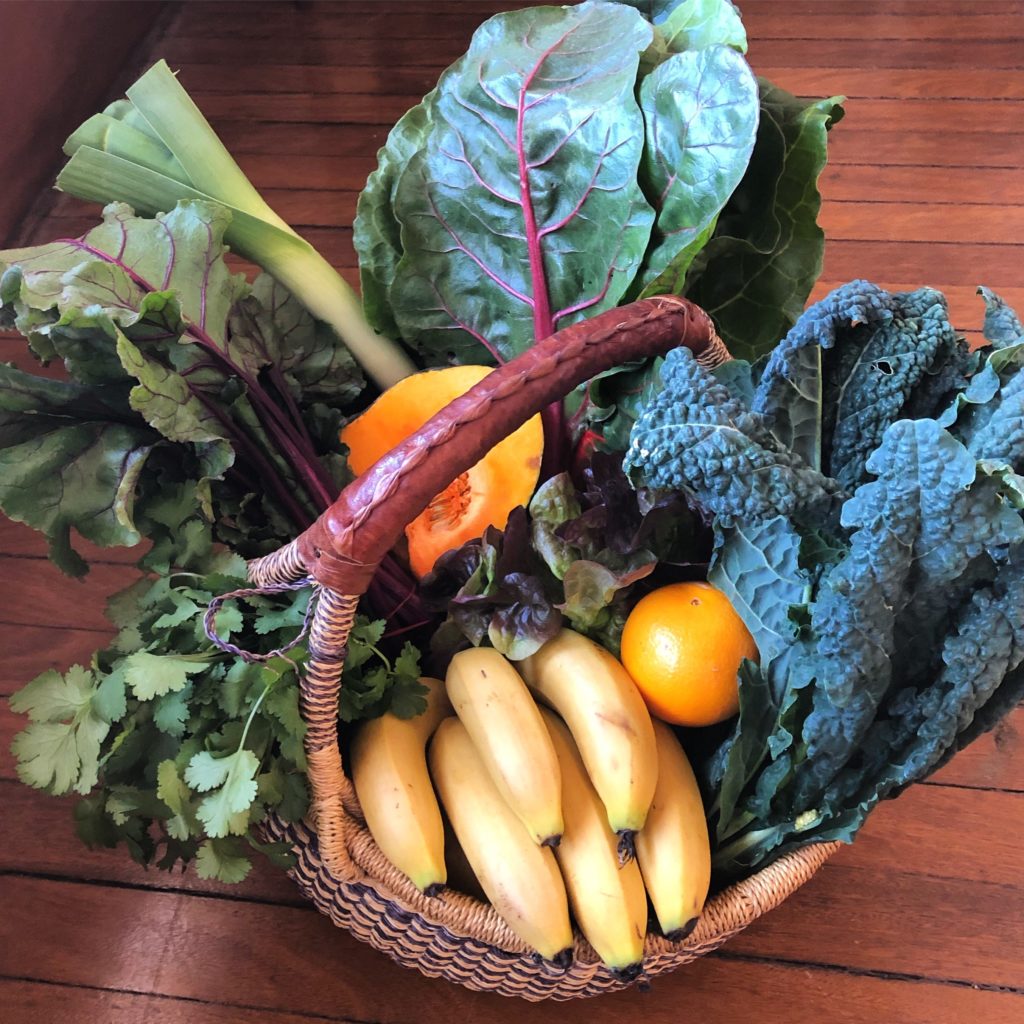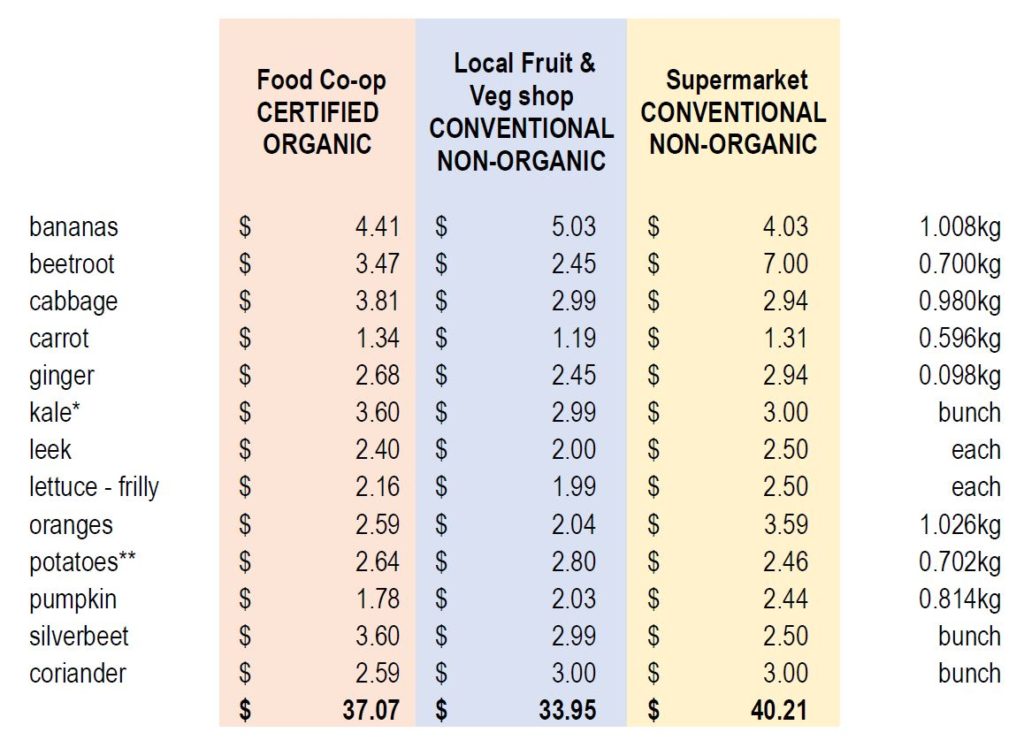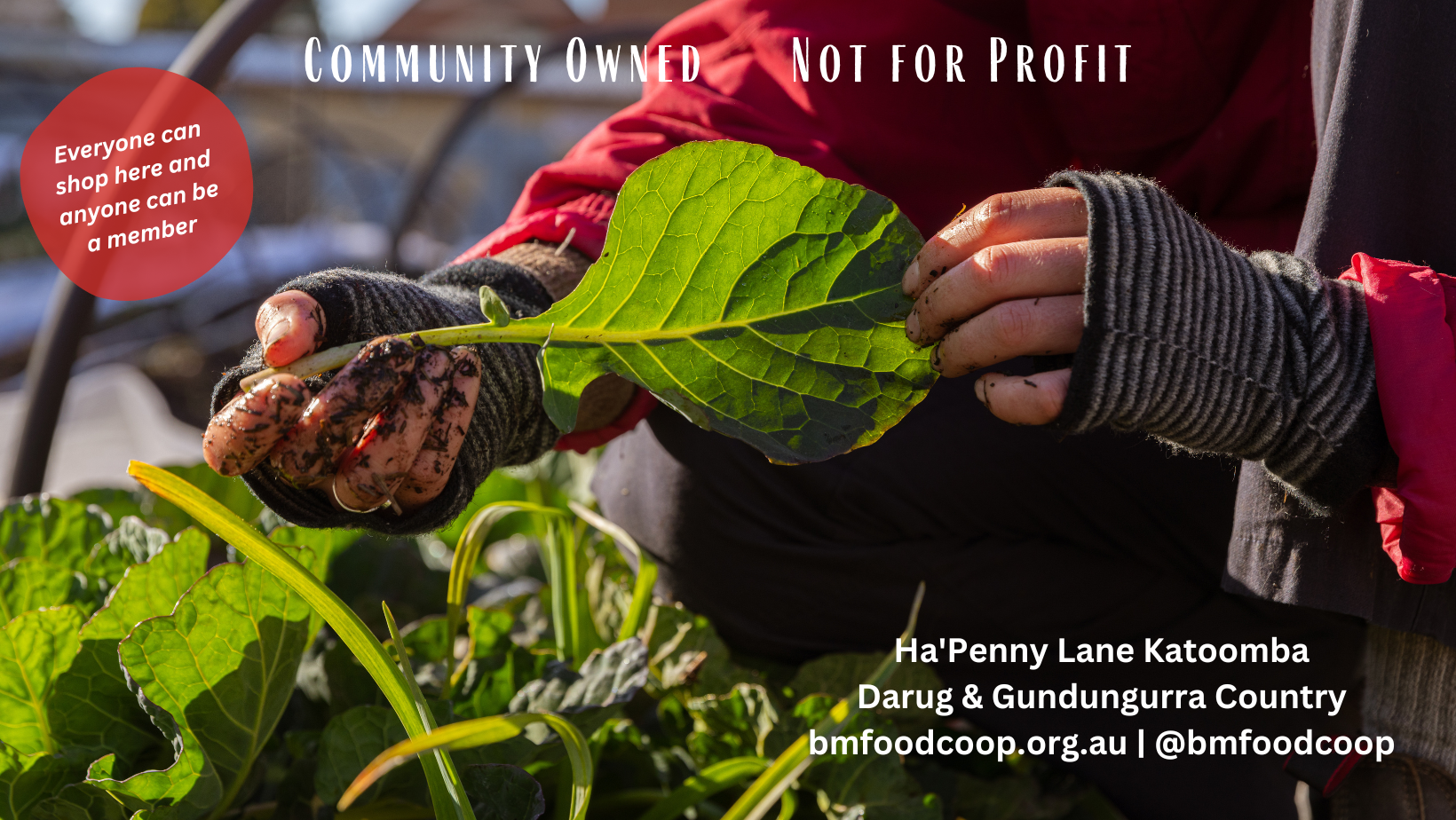Basket case
It’s often said that organic fruit and veg is too expensive and costs much more than non-organic fruit and veg. We put that claim to the test and compared the price of this beautiful basket of certified organic fruit and veg from the Co-op with the same amount of conventionally grown (using synthetic pesticides, herbicides and fertilisers) non-organic fruit and veg from two leading local retailers. Here are the results.


The Co-op basket of certified organic fruit and veg is $3.14 CHEAPER than the supermarket basket of conventionally grown, non-organic fruit and veg.
The Co-op basket of certified organic fruit and veg is only $3.12 more expensive than the fruit and veg retailer basket of conventionally grown, non-organic fruit and veg.
* Fruit & Veg retailer had no kale when visited so this is an estimate based on their silverbeet price.
** Co-op potatoes (pictured) are Sebago (all Co-op potatoes are priced the same), Fruit & Veg retailer potatoes priced were Dutch Cream, Supermarket potatoes priced were brushed unnamed.
Why choose organic?
Despite recent studies showing that it is difficult to substantiate the real health benefits of eating organic food, many of us choose organic because we don’t want to be exposed to chemical residues from synthetic pesticides, herbicides and fertilisers used to grow food conventionally.
Organophosphates, found in common pesticides, have been linked to negative effects on children’s brain development including a lower IQ and ADHD. Systemic pesticides, commonly used in Australian agriculture, remain within plant tissue, killing insects that feed on them, and have been linked to honeybee colony collapse disorder. As the name suggests, systemic pesticides cannot be washed or peeled off fruit and vegetables.
A study by the University of California found that eating organically grown food greatly reduced levels of toxins in the body: “levels of toxins decreased by an average of 60.5 percent after six days of eating organic food.”
Organically grown fruit and veg has also been proven to have higher levels of antioxidants, which may be due to the fact that plants grown organically produce antioxidant compounds to fight off pest attacks naturally.
And a report on the Sustainable Table website, which addresses the organic versus conventional argument – from ecological, ethical and health perspectives – states: “New tests that are measuring more complex chemical compounds (in food) are starting to reflect that organic foods have superior health benefits such as lowering cholesterol and blood sugar levels and have anti-cancer, anti-inflammatory and anti-ageing effects.”
Organic farming also has many advantages for the environment and food security. According to research by Rodale Institute:
Organic farming:
- yields match conventional yields after a five-year transition
- outperforms conventional farming in years of drought by up to 40%
- earns 3–6 time greater profit for farmers
- leaches no toxic chemicals into waterways
- uses 45% less energy
- releases 40% fewer carbon emissions
- water volumes percolating through soil were 15–20% higher than the conventional systems
- systems are more profitable than conventional ones
And some people just think organic fruit and veg taste better.
Whatever your reasons for choosing organic you can rest assured that being a Co-op member is a great way to buy affordable, low packaging, certified organic produce.


